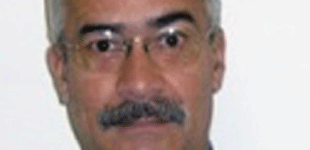
Jaime Delgado
Former QOS staff, former advisor, Proyecto Pa’lante. Class of 1976
Program Director, 72 Block by Block Program
by Brandon Thomas
Being that I am a relatively new addition to the Que Ondee Sola (QOS) team the sheer magnitude of what I had the honor of doing has actually brought a new light to my every day thought process. I was fortunate enough to interview Jaime Delgado, an original founder and member of QOS and the Union for Puerto Rican Students (UPRS) from 1972 to 1976. He would be at the university until 1988 with Proyecto Pa’Lante. In the brief time that we spent on the interview I could clearly tell from his tone and dictation the impact the struggle and the success of his organizing had on him. It was truly a remarkable experience.
QOS: Describe NEIU during your time at the university. What were the major issues or most memorable student and community struggles during this period?
Delgado: We were part of the first students that came in through Proyecto Pa’lante. The university was seriously under-representing the Latino population. It was an unusual climate on campus because there had never really been a Latino presence. Without the program I may have never been able to get into the university. With this first group came a lot of things like the establishment of UPRS and QOS. I feel like I identified as being Puerto Rican and identified with being part of the struggle. We were instrumental in trying to put pressure on the university to create Latino [focused] classes like Puerto Rican history.
QOS: What challenges did UPRS and QOS face and how did you try to address them? What alliances were important?
Delgado: There were issues where there may not have always been consensus. There were struggles with trying to organize different groups of students. We were not trying to force any type of ideas or ideologies on people. There were many barriers that were even set up against us by the university. We tried even setting up English as a Second Language (ESL) classes for people to address the language barriers. There were many instructors that seemed to be unsympathetic towards us. There was definitely administrative challenges and resistance.
I think at the time the most core alliance was between the Puerto Rican and the Mexican students. The second core was that of us and the faculty.
QOS: What kind of impact did UPRS and QOS have on campus and the community? What accomplishments were you most proud of during your time?
Delgado: I think it generally had an impact on helping create changes that were necessary at that time. Most of them were in the name of Puerto Rican students. I believe that we were able to push for a more international curriculum, which was an aggressive push to get change brought on campus. I think it impacted on the future hiring and recruiting processes of the university and also on the administration. For lack of a better term I believe that UPRS was the muscle for Proyecto Pa’Lante who could be used as a recruiting tool for the University.
QOS: What is the importance of a Latino and Latin American Studies major and the recent building of a Latina/o Cultural & Resource Center?
Delgado: I’m extremely proud [of this accomplishment] that QOS has been working on for forty years. I am also proud that both UPRS and QOS were mechanisms of change for the university campus and community. I have seen the product and the outcome.
QOS: Are there any ideas or experiences you would like to share with the present membership of these organizations and the broader Puerto Rican and Latina/o community?
Delgado: I believe that there was a period of time where people were turned off by the idea of working collectively. I think that we need to find a way to get leadership to be better equipped to understand the idea of collectivity. I feel that we need to find a way to get more people to work harder and work together towards collectivity. If there is any failure that I have seen over the last forty years it was that people seem to be more dispersed since time as passed. I think that there really needs to be more collectivity.
Leave a Reply